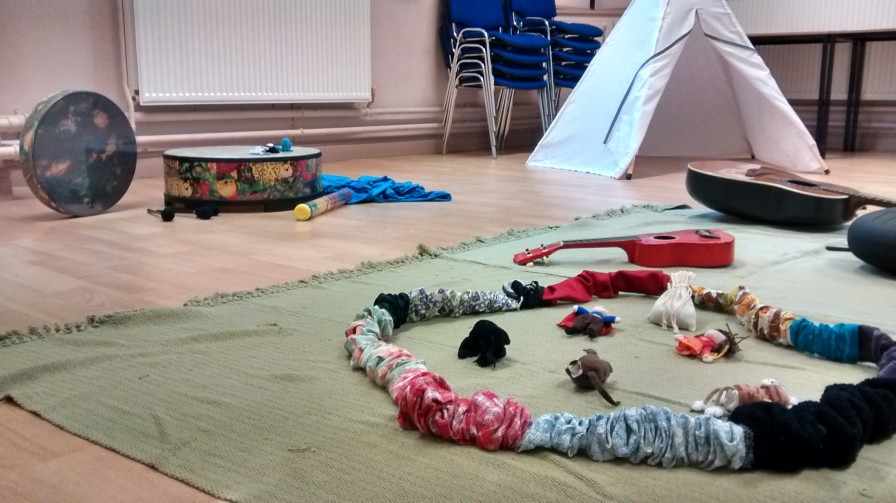Do No Harm

Music education in early childhood requires a health warning. It is powerful stuff and needs to be handled with care by professionals.
In an earlier post I outlined why Musical Play is a difficult thing to describe or pin down. The word “Music” is a synecdoche in that it can represent itself as a diverse range of interpretations. For example, the words “My child loves music” might mean that the child enjoys listening to music in the car or the child enjoys making music or the child enjoys learning about music. An adult who delivers music in early years settings could be called a Music Teacher, Music Leader, Early Years Music Practitioner, Early Years Music Specialist, Educator or Researcher. More familiar terms exist like “Fun Music Man” or “The Music Lady”. The different titles hint at different roles and expectations and the outcome of any of these music sessions facilitated by the adult could be anything; diversion from a task, learning to count to five, learning to listen, to cooperate, to speak French, to sing in tune, to play an instrument, to encourage speech, to calm down, to move together, to celebrate…or something else.
To gain some clarity, I am an Early Years (or Early Childhood) Music Specialist and here I pin down an important aspect of what I do:
Do no harm
Music Education can be harmful. I frequently hear adults I work with say “I can’t sing” or “I’m not musical”. This is so sad as we know without doubt that we are born musical and those that disagree with that idea have to argue with the work of Trevarthen, Trainor, Trehub, Eerola and many more. So what happened to these people to make them distrust their own musical ability? Music Education.
I am an early childhood music educator and I am constantly worrying about how my practice, my words and my actions affect the children and the adults that I work with. By default, I am positive about people’s musical ability. It’s relatively easy to teach someone to sing in tune and to contribute musically to the group. Changing their belief from “I’m not musical” to “I am musical” can be extremely challenging, if not impossible.
Teach “Learned Optimism”
Do you remember an episode of The Simpsons where Bart’s Krusty the Clown doll terrorises him until a technician finds out that the doll’s internal switch had been set to “evil” instead of “good”? For years I simply wanted to find some imaginary switch, possibly behind the knee of a child, which was be labelled “musical” and My job was to ensure that switch was in the “on” position. I have no one method or musical style to promote. I just want the child to know that they are musical and, with the required effort, they have the ability to express that musicality in any way they wish.
The switch is not a daft concept. The Russian philosopher Vygotsky developed the notion of “the zone of proximal development” where a more expert person (here a music practitioner) guides the musical play of a child from the level of development that the child is at towards a level of increased skill. The expert facilitates the play yet encourages the play to extend gently and positively, gathering skill and satisfaction yet challenging the child all the time. When one gets this right with the correct balance of challenge and satisfaction “flow” is achieved and time flies. In addition, the child acquires “learned optimism” in that musical play. The child can “do” music, achieve it and love it.
The opposite is “learned helplessness”. If a music teacher or partner or parent tells you that you can’t sing then that is what you learn. The musical switch is set to “off” and in adulthood it takes a lot of effort to move it back to “on”.
Do no harm, early childhood music educators! Be an important part of getting that musical switch stuck in the "on" position!
Ali
